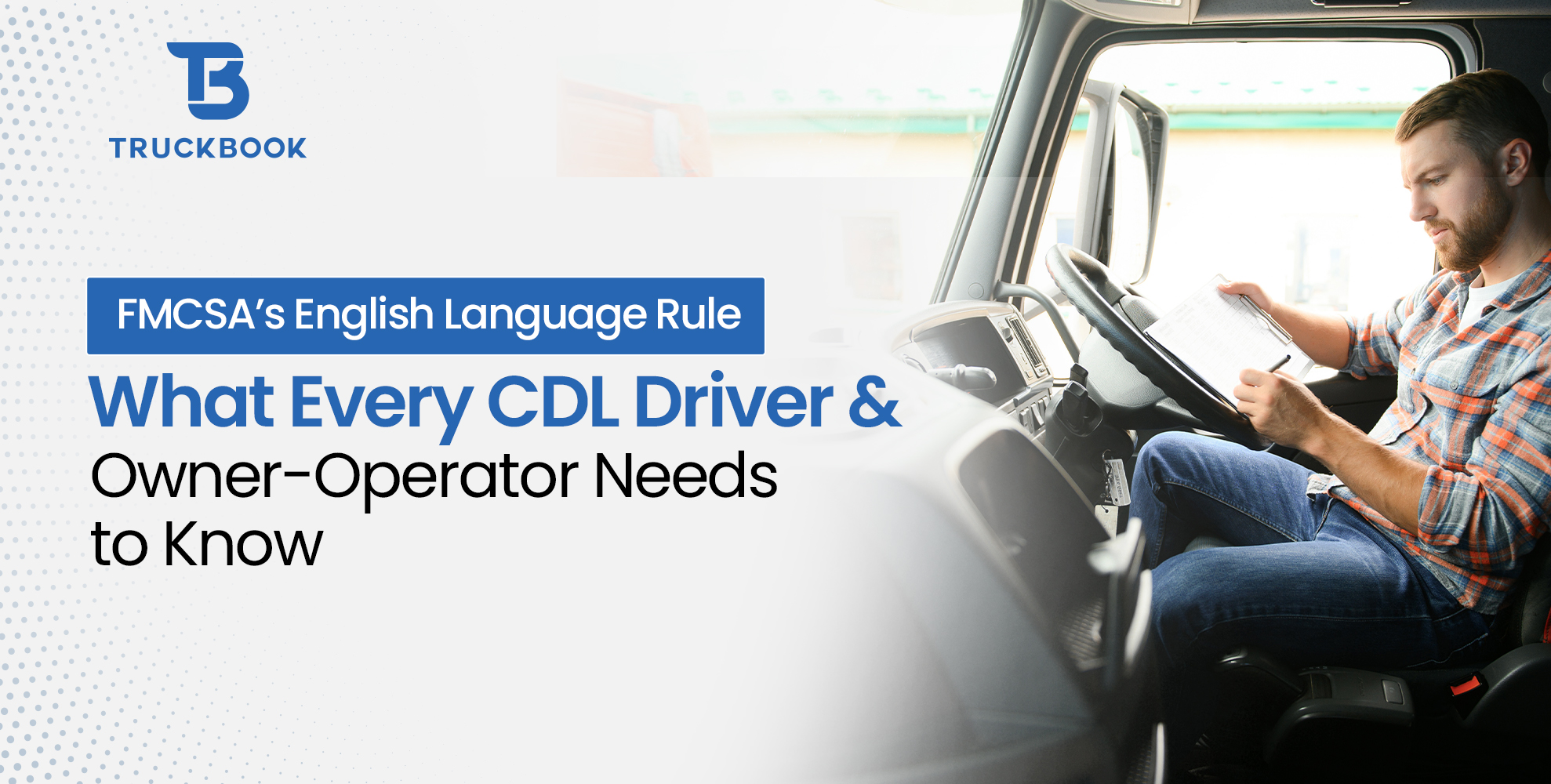If you drive a commercial vehicle in the U.S., the federal English language rule (49 CFR § 391.11(b)(2)) is just as important as your logbook or air-brake test. This rule says that drivers must be able to read, speak, and understand English well enough to talk with the public, read road signs, answer law enforcement questions, and fill out logs or inspection forms. For years, this rule wasn’t enforced strictly, but that’s about to change. If you use apps like TruckBook to manage your loads and compliance, staying updated on this rule is essential to avoid surprises.
In May 2025, the Federal Motor Carrier Safety Administration (FMCSA) told inspectors to treat poor English skills like a serious safety problem, just like bald tires or missing medical papers. The Commercial Vehicle Safety Alliance (CVSA) added English proficiency to the official list of reasons to put drivers out of service starting June 25, 2025. That means if an officer thinks you can’t communicate in English well enough, they can stop you on the spot, and your load will have to wait for a replacement driver. This will also hurt your carrier’s safety score, whether it’s a big company or your own one-truck business.
How Do Inspectors Check Your English?
There’s no written test during inspections. Instead, officers ask simple questions like:
- “Where did you load your freight?”
- “Can I see your license and logs?”
- “Please read that speed limit sign aloud.”
They might also ask you to fill in paperwork or follow instructions. If you hesitate, answer in another language, or rely too much on your phone translator, you could be taken out of service.
How to Stay Ready Without Stress
Even experienced drivers can get nervous during inspections. Here’s what you can do to stay sharp:
- Practice answering common inspection questions until it feels natural.
- Read road signs out loud during your trips to improve pronunciation and vocabulary.
- Learn important freight terms like “pallet count,” “seal intact,” “gross weight,” and “hazard class.”
- Use translation apps only as a backup, not your main tool.
- If you don’t understand an officer’s accent, politely ask them to repeat instead of switching languages.
Special Tips for Border Drivers
If you drive near busy borders like Laredo or Detroit-Windsor, you might usually use Spanish or French. But once you cross into the U.S., English is required. Many carriers are offering ESL (English as a Second Language) refresher courses and practice inspections to help drivers pass. Owner-operators should also take time during breaks to review English customs and hazardous materials terms. This small effort now can save you from big delays later.
What This Means for Owner-Operators and Small Fleets
As an owner-operator, you’re the driver and the boss. If you get flagged for poor English, it affects your business directly. You might lose money from a stuck load, get a lower safety score, face insurance hikes, or even lose clients who expect full compliance. It’s smart to keep documents like your CDL test scores or any ESL certificates handy to show you’re serious about following the rules. Plus, ESL classes might be tax-deductible as job-related education.
What Happens If You Don’t Comply?
The first time you fail, you’ll be taken out of service until a qualified driver takes over. This can cost you a day or more of work. Your company also gets points added to its safety score that stay for two years. Repeated problems can lead to license suspensions and FMCSA warning letters. Refusing to cooperate or giving false info could mean big fines—over $5,000—and worse safety ratings.
Common Questions Drivers Ask
- Does having a heavy accent disqualify me?
No, as long as you and the officer understand each other. - Can I use a translation app?
Only in emergencies. Don’t rely on it for every answer. - Does this rule apply when I’m off duty?
Yes, anytime you drive a commercial vehicle on public roads. - If I’m out of service in the U.S., can I continue into Canada or Mexico?
No, you must be cleared before crossing borders.
Important Dates to Remember
- May 20, 2025: FMCSA memo making English enforcement a priority.
- June 25, 2025: CVSA officially adds English proficiency as a reason to stop drivers.
The Bottom Line
Most professional drivers already speak enough English to do their jobs safely. The big change in 2025 is that enforcement will be much stricter. Think of your English skills like a pre-trip inspection; check them often and keep practising. Just a few minutes each day can prevent costly out-of-service orders that stop your income. Use tools like TruckBook to stay informed, prepare for inspections, and keep your business rolling smoothly.
Stay ready, stay safe, and keep those wheels turning!








